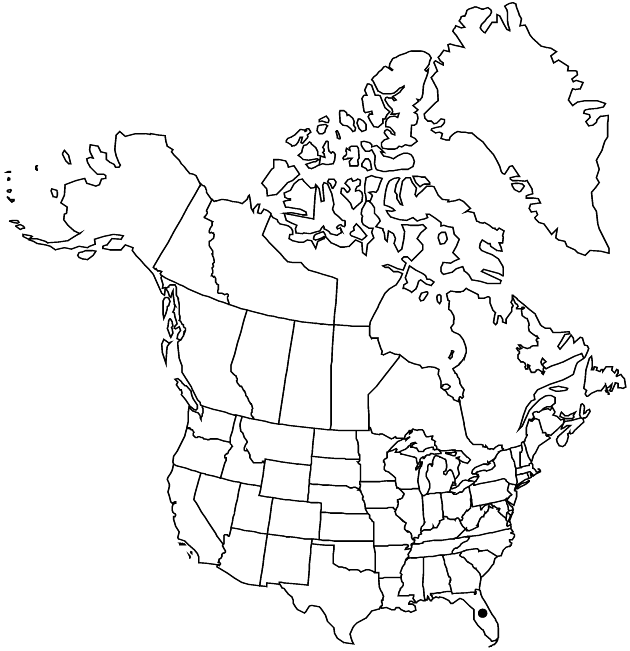familyAsteraceae
genusSolidago
sectionSolidago sect. Solidago
subsectionSolidago subsect. Venosae
speciesSolidago odora
subspeciesSolidago odora subsp. chapmanii
Difference between revisions of "Solidago odora subsp. chapmanii"
Sida 20: 1611. 2003.
Common names: Chapman’s goldenrod
Basionym: Solidago chapmanii A. Gray Proc. Amer. Acad. Arts 16: 80. 1880
Synonyms: Solidago odora var. chapmanii (A. Gray) Cronquist
FNA>Volume Importer |
FNA>Volume Importer |
||
| Line 8: | Line 8: | ||
}} | }} | ||
|common_names=Chapman’s goldenrod | |common_names=Chapman’s goldenrod | ||
| − | |basionyms={{Treatment/ID/ | + | |basionyms={{Treatment/ID/Basionym |
|name=Solidago chapmanii | |name=Solidago chapmanii | ||
|authority=A. Gray | |authority=A. Gray | ||
| + | |publication_title=Proc. Amer. Acad. Arts | ||
| + | |publication_place=16: 80. 1880 | ||
}} | }} | ||
|synonyms={{Treatment/ID/Synonym | |synonyms={{Treatment/ID/Synonym | ||
| Line 30: | Line 32: | ||
|elevation=10–50 m | |elevation=10–50 m | ||
|distribution=Fla. | |distribution=Fla. | ||
| − | |discussion=<p>Subspecies chapmanii is found mostly in peninsular Florida, seldom in the eastern panhandle. Its leaves are sometimes similar in shape to those of <i>Solidago fistulosa</i>, both being more ovate than in typical <i></i>subsp.<i> odora</i>.</p> | + | |discussion=<p>Subspecies chapmanii is found mostly in peninsular Florida, seldom in the eastern panhandle. Its leaves are sometimes similar in shape to those of <i>Solidago fistulosa</i>, both being more ovate than in typical <i></i></i>subsp.<i><i> odora</i>.</p> |
|tables= | |tables= | ||
|references= | |references= | ||
| Line 54: | Line 56: | ||
|publication year=2003 | |publication year=2003 | ||
|special status= | |special status= | ||
| − | |source xml=https://jpend@bitbucket.org/aafc-mbb/fna-data-curation.git/src/ | + | |source xml=https://jpend@bitbucket.org/aafc-mbb/fna-data-curation.git/src/f6b125a955440c0872999024f038d74684f65921/coarse_grained_fna_xml/V19-20-21/V20_321.xml |
|tribe=Asteraceae tribe Astereae | |tribe=Asteraceae tribe Astereae | ||
|genus=Solidago | |genus=Solidago | ||
Revision as of 18:42, 24 September 2019
Stems uniformly puberulent, sometimes with short glabrous-glabrate strips proximal to leaf bases. Mid cauline leaves mostly (15–)30–70 × 8–20 mm (2–6 times as long as wide). 2n = 18.
Phenology: Flowering Sep–Oct.
Habitat: Sandy soils, margins of woods, open pine and oak woods
Elevation: 10–50 m
Discussion
Subspecies chapmanii is found mostly in peninsular Florida, seldom in the eastern panhandle. Its leaves are sometimes similar in shape to those of Solidago fistulosa, both being more ovate than in typical subsp. odora.
Selected References
None.
Lower Taxa
None.
